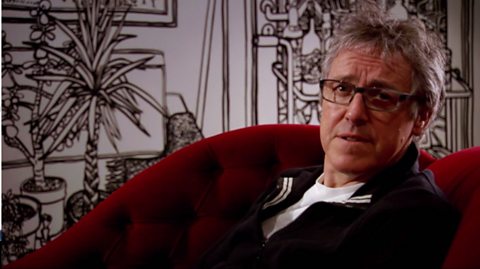Anthony Horowitz:I had enormous fun writing my two books about Sherlock Holmes. It was an opportunity, not just to read the books, but to live inside them as it were.
Anthony Horowitz:To join Holmes and Watson in 221b Baker Street in 19th Century London, and I just loved being close to them because this is really the greatest friendship in British literature.
Anthony Horowitz:What is so wonderful about them is their relationship with each other, and I felt I was in the study with them in a third chair, sharing their life.
Anthony Horowitz:People often ask me where do ideas come from, and the answer is actually the ideas are everywhere. Everything that we are surrounded by has a story attached to it. This chair I'm sitting on, this rug, this office.
Anthony Horowitz:While we've been making this film there have been all sorts of noises coming from the office upstairs, and from the office next door. And there are stories behind those noises, what's been going on next door and upstairs?
Anthony Horowitz:So imagine somebody had been murdered while I was doing this interview and the evidence for that murder is now on this camera in this film. That's the beginning of a story, I could write it today.
Anthony Horowitz:How do I work? Well… We're actually shooting this in my office, and I sometimes spend ten hours sitting at my desk or strolling around the room, and for me, writing is immersion, I think that's the most important thing.
Anthony Horowitz:I mean I do have certain rules. I structure everything, I tend to write with a fountain pen rather than a computer, for the first draft anyway.
Anthony Horowitz:But at the end of the day what matters most to me is this sense of immersion, of completely losing myself in the work. It becomes like a river which I jump in to and it sweeps me down through the landscape.
Anthony Horowitz:And the honest truth is that I can sit here and not notice that morning has turned to afternoon, has turned to night because all that matters is the story.
Anthony Horowitz:All my Alex Rider books, and the Power of Five series, are being turned into graphic novels, and I love them. Mainly because I think there are lots of young people out there who aren't quite ready yet to read a whole novel but can still enjoy the story through pictures and captions.
Anthony Horowitz:I don't write them myself, incidentally, there's a wonderful writer called Anthony Johnson who does the Alex Riders.
Anthony Horowitz:And I look at them, and read them and make sure that everything is alright, and I really like them because the great thing about a story of course, is that it can exist in so many different forms.
Anthony Horowitz:And Alex has also been a feature film, so you get that whole panoply of, sort of, book, into graphic novel, into feature film or television, even on the stage. Story can live anywhere.
Anthony Horowitz:Some people criticise Agatha Christie and say she wasn't a great writer because her characters were a bit thin, or because she didn't, sort of, use very rich textured language, but for my money, she is a genius.
Anthony Horowitz:And what I love about her books most, is her structuring, her plotting. The way that when you read an Agatha Christie, all the clues are right there in front of you, and when you get to the end of it, and you get to the solution, you realise you really should have guessed it if you didn't. And it was there the whole time.
Video summary
Anthony Horowitz discusses writing the Sherlock Holmes novels and shares his top tips for writing.
He considers where his ideas come from originally, and how to imagine stories behind everyday sights and sounds.
He shares his own writing practices and talks about what it feels like to immerse yourself in writing.
He concludes by looking at the idea of story in different forms and shares what he admires about Agatha Christie and her way of carefully deploying clues within a narrative.
Teacher Notes
Students could use the clip as a springboard for their own writing discussions as well as to complete their own version of the sentence ‘Writing is….’.
Students could begin a writer’s notebook, writing lists of all the different things that it is possible to use as inspiration for writing.
Students could experiment with using some very ordinary sights and sounds from their immediate environment to write the opening to a story.
This clip will be relevant for teaching English Language at KS3 and KS4 in England, Wales and Northern Ireland and National 4 and 5 in Scotland.
Comic strips and graphic novels. video
David Almond and Eoin Colfer explore flexibility of form in contemporary narrative writing.
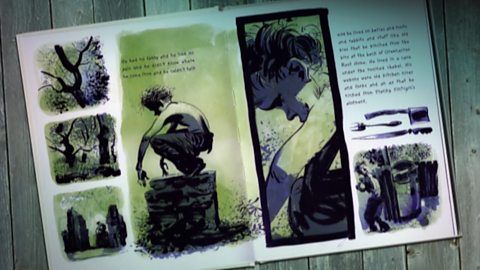
What makes travel writing engaging? video
Kate Humble offers detailed practical advice for ways to make travel writing engaging.
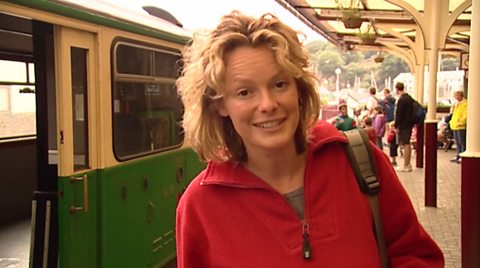
What makes good story writing? video
Jamila Gavin, Keith Gray, Jacqueline Wilson, David Almond and Malorie Blackman share their writing secrets, giving consideration to where they find their inspiration, what their writing triggers are, and how they get writing started.
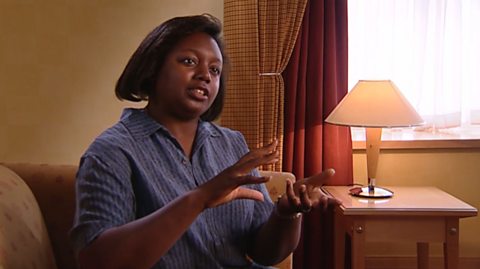
How did Arthur Conan Doyle create the character of Sherlock Holmes? video
Andrew Marr investigates the real-life inspiration for the character of Sherlock Holmes.
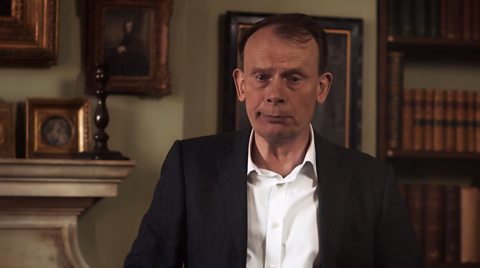
Comedy and tragedy in Great Expectations. video
Tony Jordan investigates Charles Dickens’ life during the writing of Great Expectations.
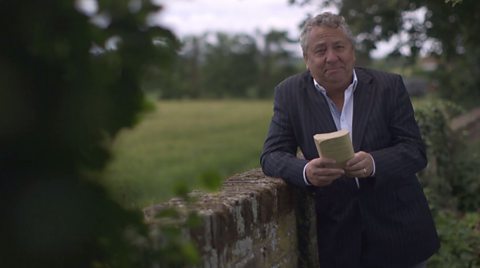
Music in performance poetry. video
Anthony Horowitz introduces the work of Kae Tempest to consider the musical quality of poetry.

What is the power of poetry? video
Griff Rhys Jones on why poetry is powerful and how it differs from other forms of writing.
